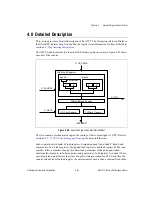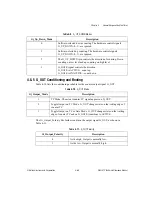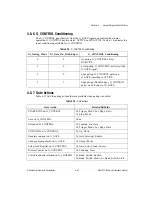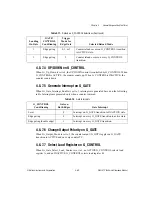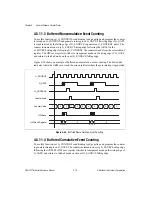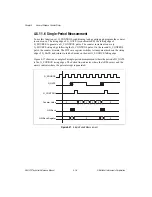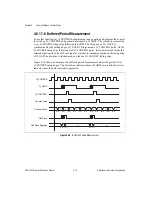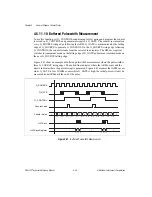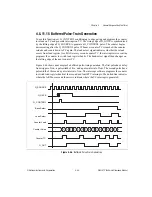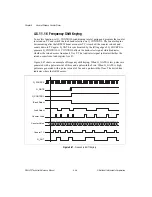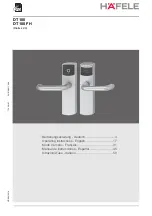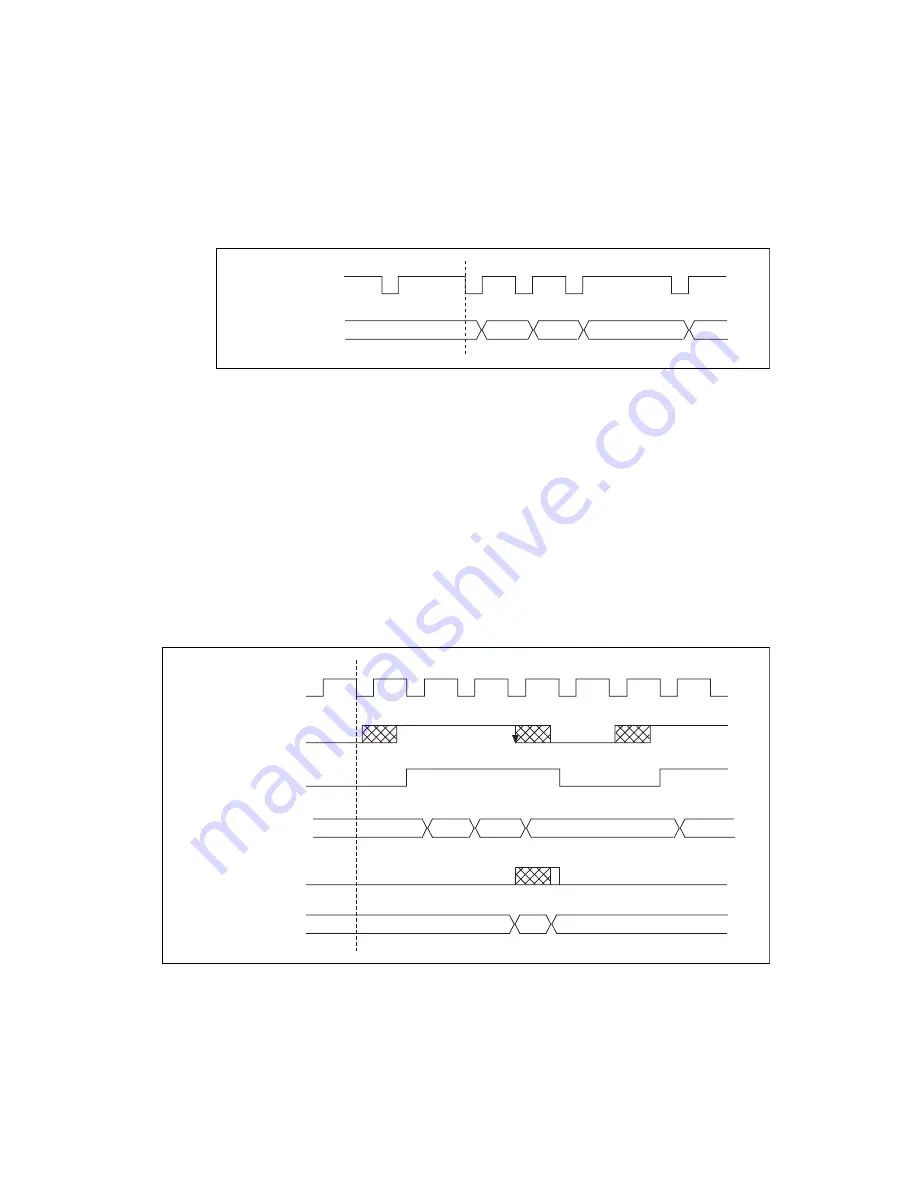
Chapter 4
General-Purpose Counter/Timer
©
National Instruments Corporation
4-73
DAQ-STC Technical Reference Manual
Figure 4-32 shows an example of simple event counting where the counter counts four events
on G_SOURCE. The dotted line indicates where the ARM occurs.
Figure 4-32.
Simple Event Counting
4.8.11.2 Simple Gated-Event Counting
To use this function, set G_CONTROL conditioning to level gating and program the counter
to count on G_CONTROL. G_GATE is synchronized by the falling edge of G_SOURCE to
generate G_CONTROL. The counter increments only when G_CONTROL is high. The HW
save register switches to transparent mode on the falling edge of G_GATE and returns to
latched mode on the next G_SOURCE falling edge.
Figure 4-33 shows an example of simple gated-event counting where the gate action allows
the counter to count only four of the rising edges of G_SOURCE. The HW save register
latches the counter value each time the counting stops. The dotted line indicates where the
ARM occurs and the arrow indicates where the gate interrupt is generated.
Figure 4-33.
Simple Gated-Event Counting
Counter Value
G_SOURCE
0
1
2
3
4
Counter Value
G_SOURCE
G_GATE
G_CONTROL
HW Save
HW Save Register
0
1
2
3
4
3



